ATPL integrated
The integrated course (no prior knowledge) is designed for future commercial pilots. If you want to become an airline, cargo or business pilot but do not yet have a pilot’s licence, this is the course for you. The course can be done in parttime or fulltime. In full-time mode the course takes around 24-36 months. All of our flight and theory instructors have many years of practical and teaching experience. Our team consists of flight meteorologists, air traffic law experts, active airline pilots and air traffic controllers, and former military pilots.
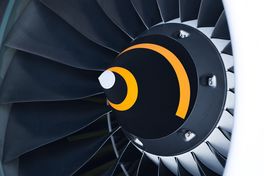
Course Entry Requirements
- Minimum age 18
- Very good English language skills
- Clean criminal record
- Aviation Medical Certification Class 1 (including Instrument Rating check)
- European passport, valid residence permit or student visa
- Matura, Abitur, A levels or international High School diploma
- Basic Qualification Test
- Attendance at an Information Afternoon or career counselling session
- Personal interview
Course duration
Full-time: 24-36 months (as experience value, with planned training progress and depending on your time availability)
You set the pace of your education!
Course structure
Your training is divided into 6 blocks:
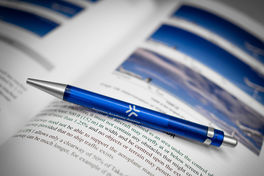
You’ll start your training with an online E-learning phase using Boeing’s proven eAcademy Training System. In it, you’ll learn the theoretical knowledge necessary for SEP (Single Engine Piston) aircraft piloting, and lay the basis for your further theoretical learning.
After successfully completing the E-learning phase, you’ll move on to classroom learning together with other trainees, where instructors will help you firm up your knowledge.
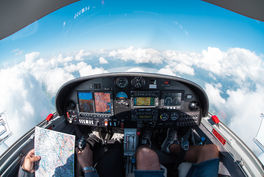
This block consists of flight instruction on the DV20i. First you’ll get your general radio certification, which you’ll put to practical use starting with your first flight hours. In this block we teach the content required for a private pilot license on a single-engine piston (SEP) aircraft under visual flight rules (VFR). This includes basic training, Alpine instruction, your first solo flight hours and navigation flights. Progress checks during this phase ensure that your skills develop to our high standards.
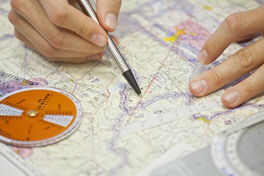
In this block you’ll add to your knowledge and learn the theory that a commercial pilot needs to know. ATPL (Airline Transport Pilot License) Theory covers the following subjects:
- Air Law,
- General Aircraft Knowledge (Airframes, Systems, Powerplant, Instrumentation),
- Mass and Balance,
- Performance,
- Flight Planning,
- Human Performance and Limitations,
- Meteorology,
- General Navigation,
- Radio Navigation,
- Operational Procedures,
- Principles of Flight, and
- VFR and IFR Communication.
During this block the instruction will again be with the online eAcademy Training System you are already familiar with. This lets you build up your theoretical knowledge parallel to your practical training, to make very efficient use of time. Each subject is concluded with an online test. This is required for continuation to the classroom phase in Wr. Neustadt (LOAN). When you have completed the classroom instruction for all ATPL subjects, you’re ready for the official theoretical ATPL examination.
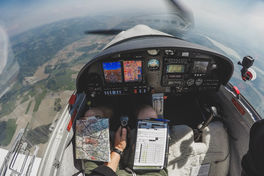
This part of the training focuses on getting the requisite flying time under your belt. You’ll fly alone and gain experience flying to commercial airports, small aerodromes and other countries. We’ll supervise you from flight planning to debriefing on the ground with a flight instructor. Introduction to night flying is another important part of this block.
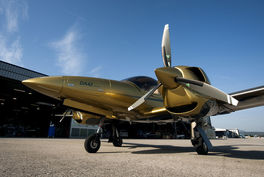
In this block we get into IFR (Instrument Flight Rules) and MEP (Multi Engine Piston) flight training. Your first instrument flight will be on the FNPT II simulator, before you move on to a single-engine plane (DA40) and then continue on the twin-engine DA42.
A large part of the instrument flight instruction will take place on the FNPT II flight simulator in Wr. Neustadt. Here you can train all procedures risk-free, including coping with instrument failures, system and engine malfunctions, and other emergency situations. A skill test concludes the practical training. Now you have successfully completed your professional pilot training and have also learned the theory needed for an airline pilot license.
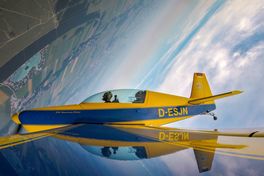
UPRT - Upset Prevention & Recovery Training is specialty training conducted in aircraft meant to prepare pilots for “loss of control in flight”.
The aim is to provide the flight crew with the necessary skills to prevent and recover flight conditions outside of normal scheduled operations or training. Since 20.12.2019, Upset Prevention Recovery Training is mandatory for commercial pilots (transition period until 2021).
Why do commercial pilots need UPRT?
When you find yourself in a critical situation, the plane unexpectedly starts to spin, you experience wake turbulences and find yourself in a overbanked situation or even inverted flight; there is no time for the textbook! You need to execute recovery procedures quickly. This is exactly what we practice in our UPRT training.
According to the EU Commission, Upset Prevention Recovery Training "on aircraft" is an appropriate strategy to avoid undesirable flight conditions or loss of control of aircraft (which are among the major risk factors and can lead to fatal accidents in commercial air transport). "Training to prevent and terminate undesirable flight conditions must be integrated into various phases of the career of commercial pilots," writes the EU Commission.
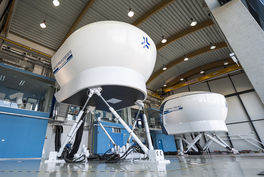
In this last phase of your training, we'll prepare you to work in a two-person jet aircraft cockpit, dividing the tasks and communicating correctly and efficiently.
Our MCC (Multi Crew Cooperation) and JOT (Jet Orientation Training) course is held at our simulator centre in Neusiedl am See. You'll learn to fly a jet properly in one of our full flight simulators. We are one of the very few academies, which does the MCC &JOT on a level D qualified full flight simulator!
Our syllabus exceeds the minimum requirements: Instead of only 15 hours practical MCC instruction (in an integrated ATPL course) you will get 28 hours of jet-flying experience. Ground course lasts 25 hours, followed by 12 hours cockpit procedures training and 16 hours MCC and JOT flight training.
This part of your education is vital, and forms the transition to jet flight operation. The MCC course is required for airline pilots and for admission to a type rating on a particular aircraft type. When you finish your education with your MCC certificate, you'll receive your pilot license. You're ready for departure - well prepared to apply for a position with your future employer!
Qualification
You’ll leave with an EASA CPL (Commercial Pilot License) with ATPL Theory Credit. SEP (Single Engine Piston), MEP (Multi Engine Piston) and IFR (Instrument Flight Rules) qualifications will be entered in your pilot license, authorizing you to fly single and multi-engine aeroplanes under visual and instrument conditions. MCC (Multi Crew Cooperation) will also be entered in your license.
The fleet, the MCC facilities and the connections from the school to Airlines/Executive aviation are fantastic.

First Officer Cessna Citation
Thanks to AAA, I was able to fulfill my childhood dream of becoming a pilot.

AAA Student
Interested? Then register now!
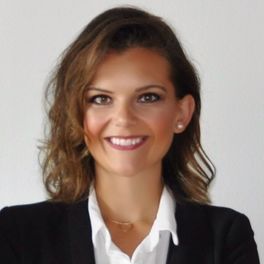
The shortest path to your high-end education?
Contact:
- Mrs. Dajana Jozic, pilot(at)aviationacademy.at / Phone +43-5-9449-950 or
- our Office team loan.office(at)aviationacademy.at / Phone +43-5-9449-900.
They will be more than happy to advise you!